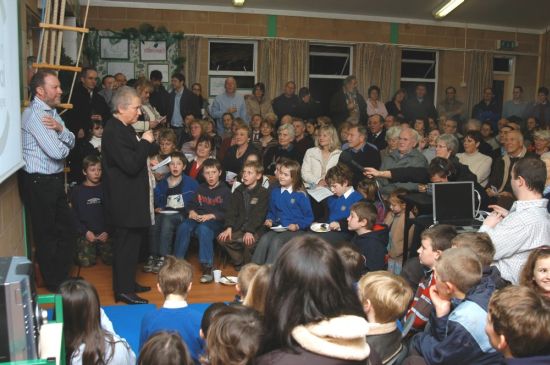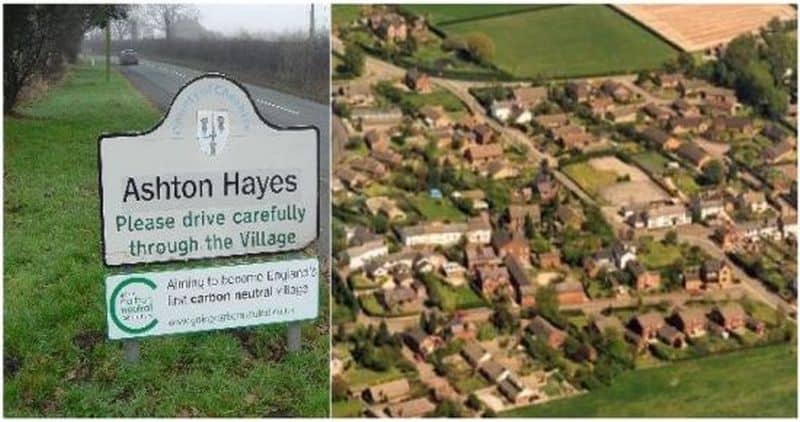Ashton Hayes in Cheshire, England, is fast developing as a zero-carbon village. It aims at what nations worldwide deem unachievable, i.e. carbon neutrality. The University of Chester says that the village has reduced its carbon footprint by a massive 23%. The whole village is studded with wind turbines, solar panels and similar technologies touting the green laurels bestowed upon the county.
The journey, thus far:
[youtube http://www.youtube.com/watch?v=C9jPKLyGa_w&hl=en&fs=1&color1=0x234900&color2=0x4e9e00&border=1]
The unparalleled achievement is complimentary to some serious eco-efforts, dating back to November 2005 when the Parish Council consented to Gary Charnock’s proposal to target carbon-neutrality. Gary got ample support from Roy Alexander, the professor of Environmental Sustainability at the University of Chester.

The duo maturely informed people on global warming, shared opinions and affected behavioral changes among the inhabitants. Now, in Ashton Hayes, 99.4% of households are engaged in environmentally friendly behavior (EFB).
Some simple steps made it possible:
The proposed measures included some very basic instructions, such as:
1) Urging people to cut down on their energy requirements,
2) Installing solar panels at commercial, community and residential areas,
3) Setting up wind turbines behind the public buildings,
4) Asking local authorities to link schools, railway stations and communities via footpaths,
5) Encouraging biking and walking,
6) Avoiding pre-packed vegetables, instead focused more on growing them,
7) Raising the community spirit among the masses,
8) Installing a electricity-led sustainable biodiesel CHP boiler in the school,
9) Replacing coal fired central heating with a combination of oil and wood,
10) Using solar power to supply top-up heat,
11) Using reclaimed materials where practicable, e.g., doors, sanitary ware/ furniture and feature items,
12) Reducing heat loss,
13) Converting main cars to LPG,
14) Recycling gray water,
15) Gathering wood locally from fallen trees, and,
16) Utilizing excess soil from drainage to raise gardens.
[youtube http://www.youtube.com/watch?v=us9FzZE_-n4&hl=en&fs=1&color1=0x234900&color2=0x4e9e00&border=1]
Moreover, the initiatives were backed by the U.K. government and the local community as well. Accordingly, DEFRA extended a £26,500 grant under the Tomorrow’s Climate, Today’s Challenge Program. The Cheshire Community also raised finances amounting to £1000. Hence, funds were never an issue.


